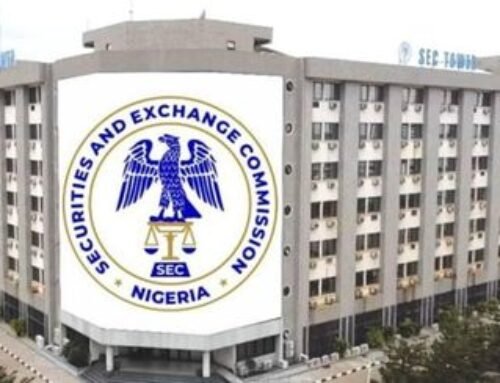
Abimbola Adeseyoju is Chief Executive Officer, DataPro Group, one of the indigenous credit rating agencies in the country. In this interview with Ibrahim Apekhade Yusuf, the financial expert who has garnered almost three decades in the industry speaks on the nation’s dwindling reserves, unimpressive GDP growth rate, prospects and challenges of credit ratings, among other sundry issues that plague the economy. Excerpts:
The GDP growth of 5.01% in the second quarter, arguably the highest since 2014 beats the projected 2.5% GDP growth target of the government. Do you think this is sustainable?
First, I like to say the Nigerian economy is relatively resilient. But it is pertinent to put the 5% growth in context. Notably, the growth partly reflects the low base effect of the 2020 Q2 GDP numbers when the economy shrank 6.1%. As you may observe, the nominal size of economic output in the second quarter of this year stood at N39.6trillion and that is still below the size of the economy in the first quarter when nominal GDP stood at N40.5trillion, and worse still it is far below the size of the economy in the second quarter of 2019, when Nigeria’s output was measured at N17.1trillion. So, it’s good to be excited at this growth feat which marks the 3rd consecutive positive quarterly growth, hence reinforcing the recovery from recession, albeit it’s not eureka yet. Oil production is down to 1.2 million barrels per day from about 1.6millio barrels per day production we had in the second quarter, even as concerns are rising that prices may take a breather at current levels. Whilst oil sector represents less than 8% of the GDP, it may be a drag. Trade and manufacturing took positive turns in the second quarter but increasing foreign currency volatility, precisely at the parallel market may undermine the sustainability of that growth, given impact of relative scarcity of foreign currency for import. With the CBN and the fiscal authority providing support to agriculture, hopefully the sector remains resilient. Likewise, ICT should remain strong, as the telecommunications gear up for new investments in 5G technology, in expectation of NCC receipt of the spectrum and subsequent auction of 5G licenses.
Whilst I am constructive in my expectation of sustaining the positive growth trajectory, I am conservative on the ability of the economy to sustain the strong 5% growth posted in the second quarter, given constraints on aggregate demand at all levels, as all the three economic agents are going through patches of income pressure – household income is not growing, thus undermine corporate earnings prospect and of course government revenue trails budget, hence undermining spending capacity, especially with the debt service burden, which represents 42% of 2021 budget but over three-quarter of actual revenue.
This is why we need revolutionary reforms across all major sectors, from oil & gas to agriculture, manufacturing to finance and indeed infrastructure. We need big push reforms and strong political will to catalyse deserving growth momentum that can change the narratives. Whilst some aspects of the Petroleum Industry Act remain controversial, it is important to leverage this long-awaited legislation in opening up and revolutionising the sector, with the objective of ensuring increased domestic private sector participation and enhanced benefits to the country.
As the economy recovers, what impact might the positive trend in output have on the credit ratings of Nigerian corporates and the broader risk environment?
Recovery of the economy is generally rating positive but we would also continue to monitor the uneven recovery across sectors and sub-sectors to effectively integrate the impact of recovery or otherwise of each industry on the prospect of the corporates within the sector and implications for their credit ratings and broader credibility. Beyond the general expectation, the impact on companies is often uneven, as different companies have varying vulnerabilities and response rate to changing macros. Whilst some corporates have built relative resistance to macro volatilities, putting in place proactive measures to manage shocks and effectively exploit new opportunities, others are rather reactive. Hence, we do not use a single brush on all corporates, rather we drill down to the real fundamentals of each company, taking cognizance of the pros and cons of the macro events.
What is the significance of credit ratings, especially as it seems to be a mandatory requirement for corporates seeking to raise funds, through commercial papers in the money market or bonds in the capital market?
Credit Rating is an Opinion on the Creditworthiness of an Obligor (Entity (Corporate) or Issuer of a Debt Instrument).In other words, Credit Rating Agencies worldwide assess the relative Credit Risk of Specific Debt Instruments or Structured Finance Instruments and Borrowing Entities. We serve as Information Intermediaries by reducing information cost, increasing the pool of potential borrowers and promoting liquidity in the Capital market. Our function also increases the supply of availability of Risk Capital (Venture Capital) and ultimately promote Economic Growth. We therefore provide investors a base for making further analysis in taking decisions about investing in a security or taking risk on a counterparty, including lending to such counter-party. Credit rating helps to compare and benchmark different institutions and securities, despite varying fundamentals, as it provides a simple, objective basis for comparison, hence the reason why credit ratings are perhaps one of the most useful tools for pricing debt instruments.





